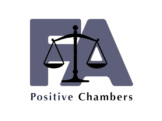Slander, Libel, and Defamation under Nigerian Law: A Legal Perspective
Defamation, which includes slander, libel, and criminal defamation, is a legal concept deeply embedded in the Nigerian legal system. It serves to protect individuals and entities from unwarranted attacks on their reputation. Defamation is a civil wrong or tort, but in some cases, it can rise to the level of a criminal offence.
Understanding Defamation,
Defamation refers to any false statement made by one person about another, which harms the reputation of the latter. It is under both common law and statutory law. The key elements required to set up defamation include:
1. A false statement about the other party.
2. The statement must be published (communicated to a third party).
3. The statement must lower the Other party’s reputation in the estimation of right-thinking members of society.
Different Types of Defamation
Under Nigerian law, defamation can be categorised into two primary forms:
Slander and Libel
1. Slander: refers to the oral or spoken form of defamation. In slander, the defamatory statement is temporary in nature, such as spoken words or gestures and therefore can be more challenging to prove. Generally, slander is actionable only when the plaintiff can prove that they suffered actual damage. However, in some situations, damage can be presumed. These situations include accusations of a criminal offence, imputations about a person’s trade or profession, or allegations of having a contagious disease.
2. Libel: is the written or published form of defamation. It includes any defamatory statement made in a permanent form such as in print, online media, or broadcasts. Unlike slander, libel is actionable without proof of actual damage. The permanence of the medium in which the defamatory statement is made often gives the other party a stronger case for libel than slander. In Nigerian law, libel is particularly significant given the widespread use of social media and online platforms.
Criminal Defamation in Nigeria
Beyond civil defamation, Nigerian law also recognizes criminal defamation under the Criminal Code Act (applicable in southern Nigeria) and the Penal Code Act (applicable in northern Nigeria). Criminal defamation occurs when a defamatory statement is so serious that it is considered a crime against public order or peace.
Section 373 to 381 of the Criminal Code Act provides the legal framework for criminal defamation in southern Nigeria. Section 373 defines defamation as a “matter likely to injure the reputation of any person by exposing him to hatred, contempt, or ridicule, or likely to damage any person in his profession.” If found guilty of criminal defamation, a person could face imprisonment for up to two years, under Section 375
Likewise, under the Penal Code Act, which applies in the northern states, criminal defamation is addressed in Section 391 to 394. In both codes, the elements to prove criminal defamation include:
1. The defamatory statement must be false.
2. It must have been made with malicious intent.
3. It must be capable of causing harm to the reputation of the person about whom it was made.
Criminal defamation is prosecuted by the state, and unlike civil defamation, the victim does not need to prove actual damage to succeed in their case.
Defences to Defamation in Nigeria,
Several defences can be raised against an accusation of defamation, whether in civil or criminal cases. These defences include:
1. Truth (Justification): If the defendant can prove that the statement made was true, this serves as an absolute defence to both libel and slander. The court holds that no person can be defamed by the truth.
2. Fair Comment: This defence applies to opinions rather than statements of fact. If the defamatory statement is an honest opinion based on facts that are truly stated and made in the public interest, the defendant may rely on this defence. This is often used by media houses or journalists in cases involving public figures.
3. Qualified Privilege: In some instances, a person may make a defamatory statement without facing liability due to the circumstances under which the statement was made. These situations usually involve statements made in the course of legal, governmental, or professional duties. As long as the defendant did not act with malice, this defence can protect them.
4. Absolute Privilege: Some statements are completely protected from defamation claims, regardless of intent or malice. These include statements made in legislative proceedings, judicial proceedings, and certain high-level government functions.
Recent Developments and Concerns
Nigeria’s defamation laws, especially criminal defamation, have been the subject of ongoing debate. With the rise of social media and the digital age, accusations of defamation, particularly libel, have increased. There are growing concerns that criminal defamation laws may be used to stifle the freedom of speech and target political opponents or journalists.
The Cybercrimes (Prohibition, Prevention, Etc.) Act 2015 has added a new dimension to defamation law by extending criminal liability to defamatory statements made online. Section 24 of the Act criminalises the use of computers to send offensive or defamatory messages, with penalties including fines and imprisonment.
Some civil society organisations have called for the reform of criminal defamation laws in Nigeria, arguing that such laws are outdated and incompatible with democratic norms of free speech. The fear is that these laws could be misused by those in power to silence dissent or criticism.
Conclusion
Slander, libel, and criminal defamation play a significant role in maintaining the balance between free speech and the protection of personal reputation in Nigeria. While civil defamation offers a remedy for people harmed by defamatory statements, criminal defamation raises concerns about the potential for abuse. The court continues to navigate these complex issues, often balancing the right to free speech with the need to protect people from reputational harm. As the legal landscape evolves, particularly with the increasing influence of digital media, defamation laws in Nigeria may need further reforms to ensure they align with modern standards of justice and free expression.

P.E OBI-OMOVOH, Esq
